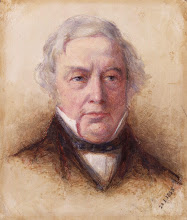City of Spokane Reorganization
Spokane's political structure has recently been changed after what was perceived by many as a disastrous crash of the the city manager form. It was said that the new strong mayor system would be more more accountable.But believe me, in a few years a similar crisis will develop, and a cry will go out for another system. There are only three or four forms of city government now in use throughout the country and two of these will have already been used by Spokane. So it can not hurt to have another option
.
I propose a radical reorganization. The new system would eliminate the growing influence of monied interests, empower more citizens, and be more efficient. And if the basic philosophy of this new system should take hold and expand, the city government as we have thought of it could disappear. A good thing. What follows is an outline. The actual transition would take place in stages and after much public negotiation among the citizens
This proposal would put into practice some ideas developed by the Australian philosopher John Burnheim in his book Is Democracy Possible? The first of his two key ideas is to set the basic units of governance into functional units rather than geographical units. The second is to select those who set the policy of these basic units by lot from a population who have an actual interest or stake in the function rather than simply being interested. The upshot of this would be governance by negotiation among representatives of a class of stake holders rather than governance by an unstable collection of power seekers. Burnheim calls this system demarchy.
Spokan' is usually thought of as being run by a council and a mayor. The council serves as a legislative and quasi-judicial body and the mayor heads up an executive branch as he oversees the police, public works, and so forth. Anyway, this is the view which gets our attention because the mayor and council members are the only elected "city" officials.. Though, remember that district 81 school board members are elected. This education system is independent of what we think of as the city government but education is certainly a local public good as important as our streets, parks and public safety. So right away we have an example of Burnheim's functional unit, though still suffering somewhat from electoral politics and without as much autonomy as possible, being beholden in several areas to Olympia and even the federal government... But do you see? We have no need for a mayor or council to meddle with the school district .
And furthermore, there are many other people, though all unelected, making decisions on our public life, under varying degrees of review by the elected officials. First, we have a partially independent park board with a budget as a fixed percentage of the overall budget; and periodically, calls are made to change this board from an appointed body to an elected body. Then we have the planning commission and library board. In fact, there are over twenty city boards and commissions. Members of these sometimes shadowy bodies are appointed by the mayor and council from a pool of volunteers
Now, why do we have these boards and commissions? It is because the elected officials do not have the expertise or time to make all the required decisions on their own. No one council member or the mayor can have at the ready the same knowledge of facts and conditions as a planning commission member and a park board member and a human rights commission member and a police commission member and a library board member and on and on. Such true generalists are just too few and far between, and precious few if any of those that do exist are being elected. Perhaps we can do away with the need for such pretenders.
Where shall we start? Let's try the police department and consider a public safety board to oversee the running of the police department -- no Mayor or city Council. I believe the ideal here would be to parallel the public education sector, A law or constitutional amendment would be passed in Olympia placing an obligation on the state to provide public safety for city residents. Of course, like with the education system, the money provided would be far short of what is needed and the board would need to ask the public to vote on regular and special levies. But short of that ideal, let us say we simply cut the police department out from under the mayor and council and place it under the governance of a police board. On the board there could be a judge, a defense attorney, a local activist with a history of being affected by crime, three citizens from a area of high crime, and two citizens from an area of moderate crime. This board would be the sole local policy making body as to the city's police department. They would be selected by lot from a list of volunteers in such a way as to be a representative cross section of those with the most material interest in the operation of the police.


No comments:
Post a Comment